Zagreb County Bistra Community Becomes Living Ecomuseum
May 24, 2021 – Preserving the traditions, crafts and heritage of a fascinating corner of Zagreb County, the entire Bistra community has dedicated itself to becoming a living, breathing ecomuseum.
One of the best ways Croatia preserves its heritage is to keep it in use. Diocletian's Palace in Split and the multiple Roman remains in Pula are not preserved behind glass. People live in and among these monuments. They are very much part of the social fabric of today.
Now, one municipality in Zagreb County is about to embrace such notions across its whole territory. The entire Bistra community, located less than 5 km north of the edges of Zagreb City, will become a living, breathing ecomuseum.
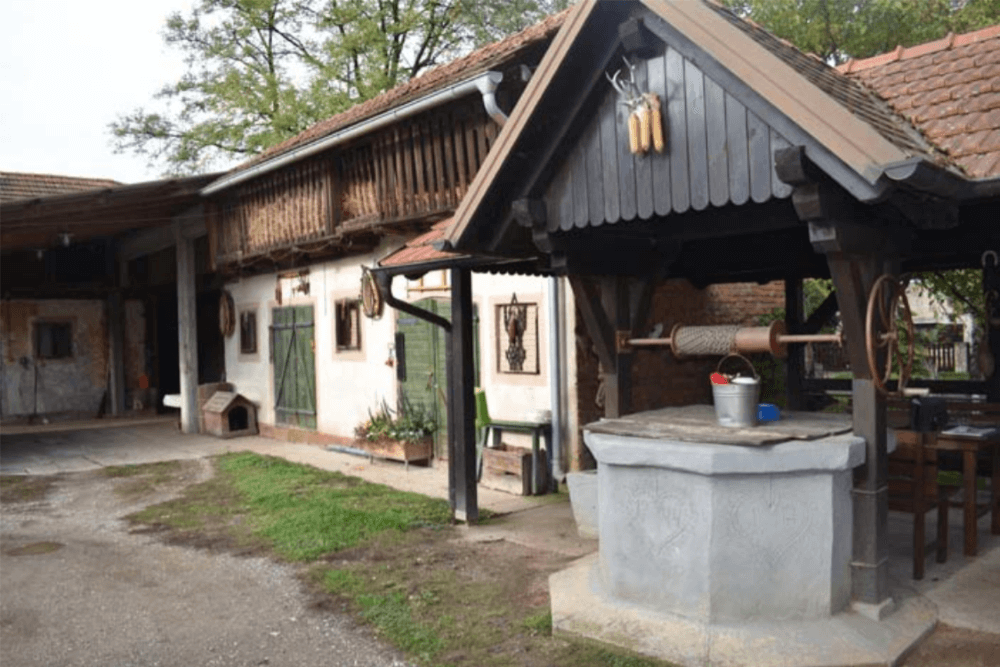 © Udruga Ekomuzej Bistra
© Udruga Ekomuzej Bistra
What is an ecomusem?
While sustainability is an aspect of the ecomuseum concept, an ecomuseum is not strictly about ecological strategies. Instead, it is more about designating a territory - in this case, the Bistra community - as an ever-evolving social and cultural museum.
Whereas a normal museum might be a building, exhibits and guides, an ecomuseum is a place, its heritage, the people who live there … and the skills and memory they have which define the area.
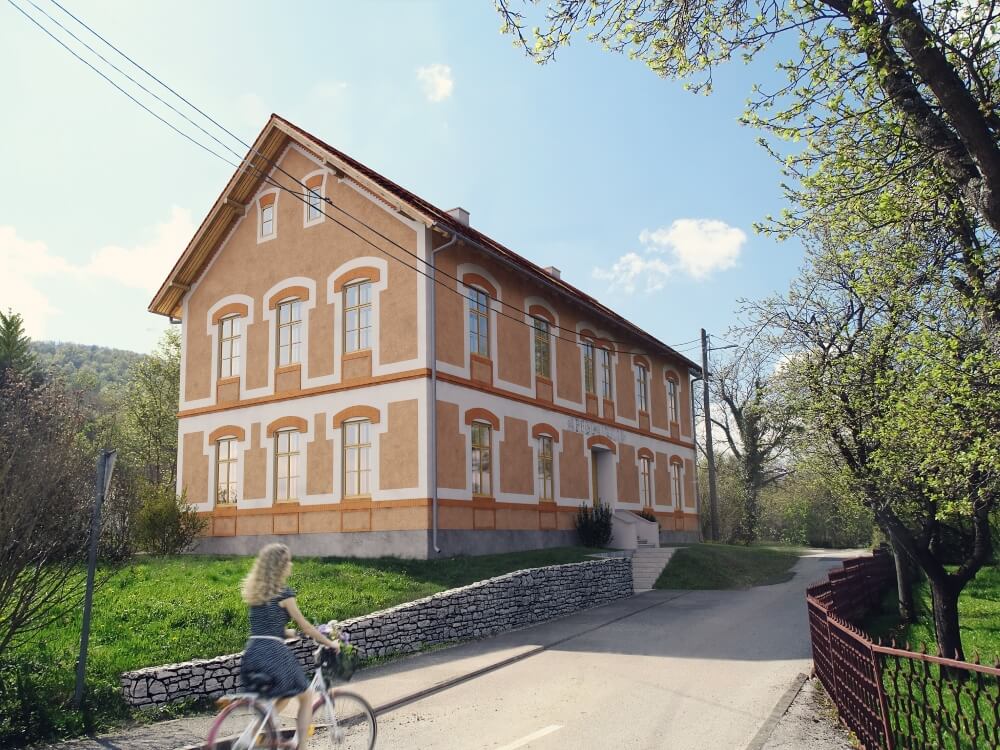 © Lovro Bauer (Fabrika arhitekti d.o.o.)
© Lovro Bauer (Fabrika arhitekti d.o.o.)
Old school building in Poljanica Bistranska
Central to the Bistra community ecomuseum project is the renovation of a special old school building in Poljanica Bistranska. It is a significant and nationally protected work of industrial architecture from 1878. Within Zagreb County, it is one of the few preserved school buildings from that period. Back in the days when it was a school, it held a garden and orchard where school children grew fruits and vegetables to eat and distribute to the poor.
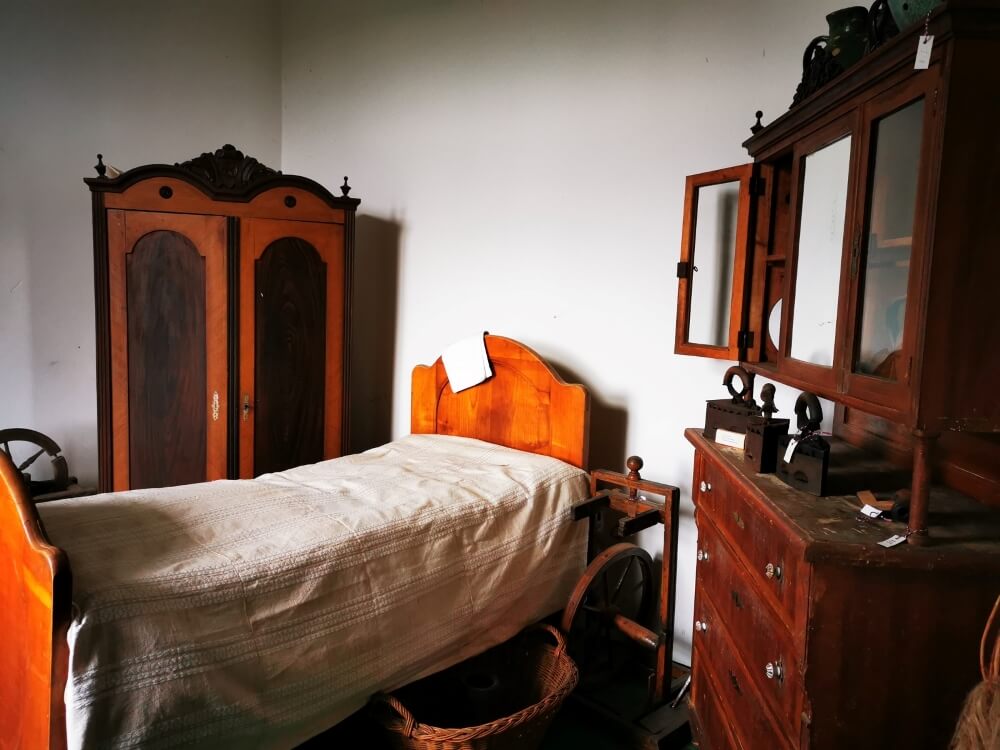 © Lina Malek / Udruga Ekomuzej Bistra.
© Lina Malek / Udruga Ekomuzej Bistra.
The building is in the process of undergoing a HRK 11,979,150 renovation, largely funded by the European Union from the European Structural and Investment Funds. Upon completion, the building will showcase examples of how the Bistra community have lived through the ages. Additionally, it will have a permanent exhibition called Bistra 1209 (when Bistra is first mentioned). Traditional culture, life and customs of the Bistra community will be displayed. For example, wedding customs, folklore, traditional decoration of people and space, agriculture, produce, superstitions and beliefs.
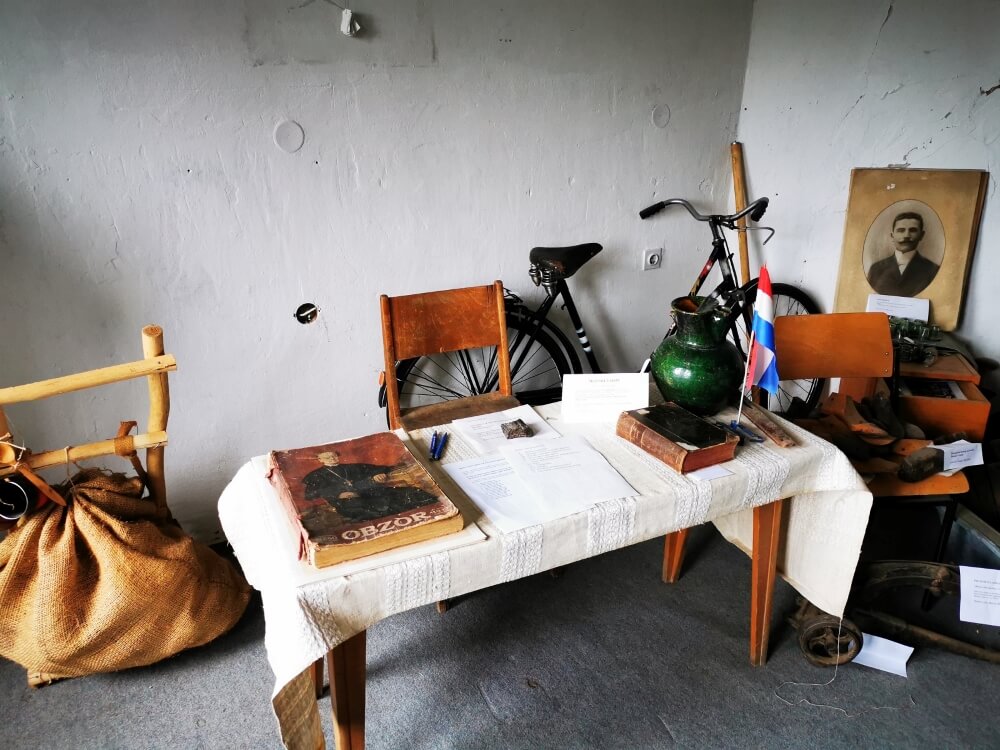 © Lina Malek / Udruga Ekomuzej Bistra.
© Lina Malek / Udruga Ekomuzej Bistra.
Ecomuseum in the Bistra community
Outside of the building, more aspects of the Bistra community to be protected under the ecomuseum project include, buildings, industry and arts & crafts. For instance, over 200 traditional wooden hut structures have been identified in the area. Some are incredibly picturesque and still very much in use.
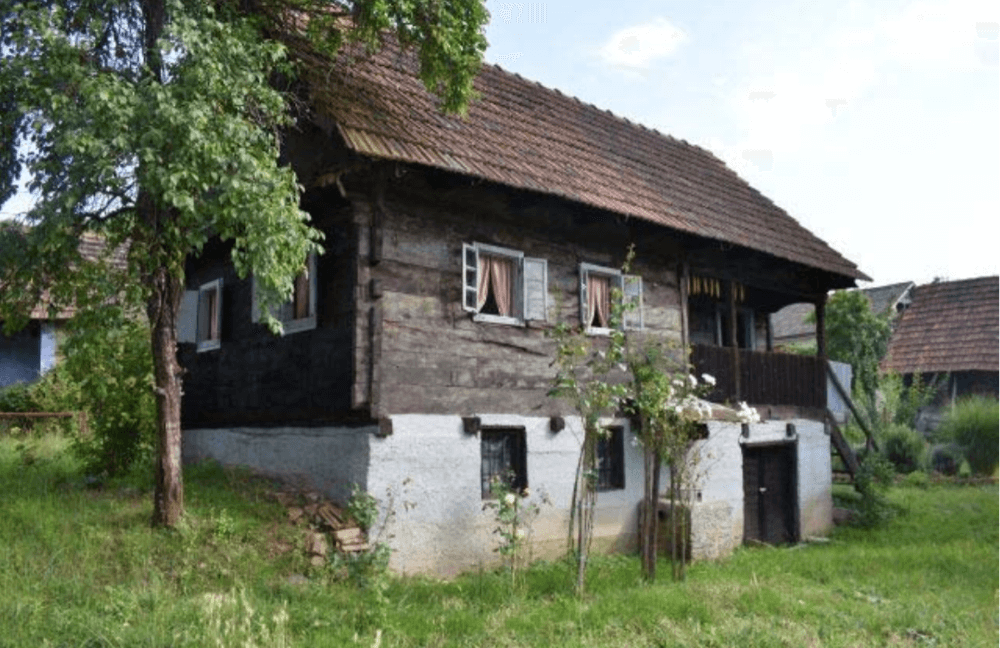 © Udruga Ekomuzej Bistra
© Udruga Ekomuzej Bistra
Within the region's key arts & crafts, the production of jewelry will be preserved. The making of kraluš – a type of neck jewelry using multicolored glass beads – is traditional in this part of northwestern Croatia. Within the canon of this recognised, regional skill, the Bistra community has two inclusions unique to them - bistranski kraluš and kravatlin.
Within the section of industry, the area's traditional production of wood charcoal in vuglenice (charcoal pits) is included. A centuries-old practice, it was once highly significant to the economic sustainability of the highland and forest regions of Croatia.
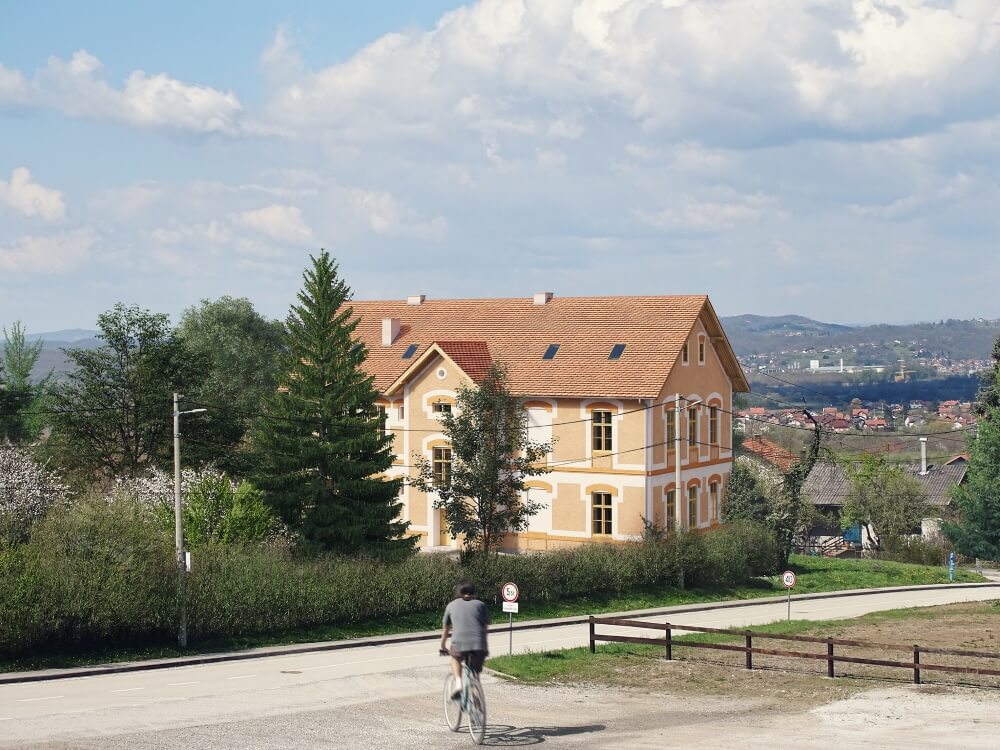 © Lovro Bauer (Fabrika arhitekti d.o.o.)
© Lovro Bauer (Fabrika arhitekti d.o.o.)
The completion of work on the old school building of Bistra community ecomuseum is expected by September 2023. But, the development of the area itself as an ecomuseum is a project that is happening now and will never end. Like Bistra's beloved Medvednica Nature Reserve or it's famous Oršić Castle in Gornja Bistra, you can go discover and enjoy them today.
Both the author and Total Croatia News would like to extend their thanks to the following for providing the assets and information necessary for this article: Zagreb County Tourist Board, Klementina Batina and Lina Malek of Udruga Ekomuzej Bistra.
HDZ BiH Women Donate HRK 100,000 for Reconstruction of Petrinja Care Home
ZAGREB, 23 May, 2021 - The president of the Women's Union of the Croatian Democratic Union of Bosnia and Herzegovina (HDZ BiH) party, Marina Pendeš, on Sunday gave the head of a care home in Petrinja HRK 100,000 for the reconstruction of the home, damaged in last year's earthquake.
Croatian Deputy Prime Minister Tomo Medved was also present.
The HDZ BiH Women's Union organised the fund-raising and raised a total of HRK 140,000, with 40,000 to go for the reconstruction of the Dragutin Tadijanović Elementary School in Petrinja.
The fund-raising for the reconstruction of the school was initiated by HDZ BiH president Dragan Čović together with the Croat mayors, municipal heads and heads of cantonal governments in BiH.
For more news about Croatia, CLICK HERE.
5 Steps to Making Dubrovnik a Vegan-Friendly Destination
May 24, 2021 - We sat down with Alyssa Isogawa, one of the digital nomads in residence in Dubrovnik, to try and craft five steps towards making Dubrovnik a vegan-friendly destination.
Alyssa is vegan and has been for eight years now. She comes from California which is known for having plenty of vegan-friendly restaurants, shops, and markets. However, she suggests this hasn’t always been the case. Her experience of Dubrovnik is overwhelmingly positive, but getting food was not always easy. She spent one month living in Dubrovnik through the Digital Nomads-in-Residence program. During that month she struggled to keep her diet healthy and balanced. There are some good vegan options in Dubrovnik when it comes to restaurants. Still, the selection is pretty limited. On the other side, there is very little information out there for any foreign newcomers to the city as to how and where to find suitable food.
Through a long coffee-fuelled meeting with Alyssa, we managed to craft a list of 5 steps that Dubrovnik can make in order to become a vegan-friendly destination. Most of these steps would also be of great help for local vegans. Not only that, but the local omnivores might find themselves interested in going vegan a few days a week. This would be good for the environment and the local producers.
Produce Markets and Shops
The main mission of a travelling vegan is to find a reasonably priced, good quality, diverse selection of fresh vegetables and fruits. The good thing about Dubrovnik is: there is plenty of locally sourced, seasonal produce around. There are also a few farmers’ markets, with the biggest one being in the Gruz Harbour area. Along with a few greengrocers in the city, the selection is actually not bad. The problem is, these places rarely advertise. They never advertise to foreigners. This is a clear consequence of short-stay tourism. The average guest to Dubrovnik coming to the city for 2 or 3 days is hardly looking for vegetables to buy during this time.
The potential solution calls for the higher visibility of these businesses. Advertising, branding, and inclusion in promotional materials promoting the city are obvious solutions. Another beneficial thing would be to educate the people selling their produce on the needs and market share of the vegan visitors and local people alike. Various food delivery services have become popular in Croatia. They would probably have an interest in cooperating with these businesses which could then offer online ordering and delivery of fresh produce.
Updated Restaurant Menus
Many Dubrovnik restaurants are lacking a decent offer of vegan dishes. Aside from two dedicated vegan restaurants, very few other places offer quality vegan options. Most of the offer comes down to grilled vegetables or seasonal salads. These dishes don’t have the main food groups necessary for a balanced meal. Carbohydrates, protein, and fats need to be present on the plate in all the vegan main dishes. They rarely are in restaurants offering vegan dishes only to satisfy the format.
Restaurant menus need updating. However, this doesn’t just mean additional work or expense incurred by the restaurant. This means a chance for more business. Most restaurant owners in Dubrovnik underestimate the share of vegan guests. Not only that, but they fail to realise vegan customers usually come to their restaurants with their partners or friends. If the restaurant is not offering vegan options, they will lose not just that vegan guest, but the people they are coming to eat with as well. In order to make their efforts worth it, restaurants need to be upfront with their vegan options. Things like HappyCow stickers or similar signs let the potential guest know the place offers vegan options.
Enriching Local Cuisine
Tied to the previous step, Croatian and Dubrovnik chefs might want to step up and make themselves heard about the vegan issue. The fact of the matter is, there are plenty of Croatian vegans that want the changes described here. There are also a number of talented and highly skilled local chefs. They might be encouraged to re-visit some of the most popular local dishes and create vegan versions of the classics. This action could be tied to promoting local cuisine to the vegan market. Creating new delicious dishes reminiscent of the traditional Dubrovnik cuisine is a great thing in itself. When these dishes are also modern, healthy, and environmentally friendly, the promotional opportunities are endless.
Labelling for Vegan-Friendly Food Items in Shops and Souvenir Shops
There are plenty of food items in Dubrovnik’s shops and souvenir shops. Spreads, preserves, sauces, or pastes are usually labelled in such a way that they are perhaps understandable to local people, but rarely are easy to read for foreigners. Additionally, sales staff often doesn’t know whether certain food items in the shop are vegan safe or not. Many potential buyers will refrain from buying these because of this lack of information. Clear labelling for food that is vegan-friendly would distinguish these items. Education of staff would help this innovation along as well. Much like restaurants with vegan options, shops offering vegan-friendly items could use signage or stickers to inform their potential customers. Sauces and spreads are a great addition to simple vegetable homemade dishes in order to take them up a level.
Education of Dubrovnik Locals
Perhaps the most important step is educating local people about vegan food. The majority of people are not aware of what real vegan food is. Many of them don’t know just how delicious, healthy, and balanced a proper vegan diet is. By raising awareness of the health and environmental advantages of vegan food, Dubrovnik would start a chain of dominoes resulting in becoming a truly vegan-friendly city. With more local vegans and people interested in having occasional vegan meals, businesses would be quick to adapt. The vegan community is tight-knit and dynamic. In an area renowned for locally sourced food, vegetable-based cuisine could be the next big thing, not just for visitors.
Majority of steps proposed in this text stem from problems caused mainly by lack of knowledge or interest. Informative events, pop-up food stands or food trucks celebrating vegan food would do wonders for the local food scene. The future is green. Let’s make Dubrovnik a city of the future!
For more on lifestyle in Croatia, follow TCN's dedicated page.
For more news in Croatia, CLICK HERE.
Demand for New Cars in EU Still Much Lower Than Before Pandemic
ZAGREB, 23 May, 2021 - Demand for new cars in the European Union was much higher in April 2021 than in April 2020, when the pandemic had just started, but it was still lower than before the pandemic, a report by the European Automobile Manufacturers' Association (ACEA) shows.
In April 2021, 862,226 new cars were registered in 26 EU member states (excluding Malta), which is more than triple than in April last year, when governments started to introduce strict lockdown measures to curb the spread of coronavirus.
Compared with April 2019, there were 300,000 fewer registered cars, the ACEA said.
In Italy demand was 34 times higher in April 2021 than in April 2020, in Spain it was 19 times higher, in France it was nearly seven times higher, and in Germany it nearly doubled.
Compared with April 2019, it dropped by 38% in France, by 36% in Spain, by 34% in Germany, and by a quarter in Italy.
In Croatia 4,147 new cars were registered in April 2021, nearly four times more than in April 2020. Compared with April 2019, the number decreased by 18%.
Jump in first four months
From January to April this year, demand in the EU was a quarter higher than in the same period last year, and 3.4 million new cars were registered.
Italy saw the biggest increase (+68.4%), followed by France (+51.0%), Spain (+18.8%), and Germany (+7.8%).
In Croatia, 14,621 new cars were registered in the first four months of 2021, a third more than in the same period last year.
For more on lifestyle in Croatia, follow TCN's dedicated page.
For more news about Croatia, CLICK HERE.
Panel and Book on Contribution of Jews to Croatian Culture
ZAGREB, 23 May, 2021 - Writer Jasminka Domaš gave a lecture in Zagreb earlier this week on the contribution of Jews to Croatian culture and their lasting legacy, and presented her book "Kadišl i Nebeski Zločini" (Kadišl and Heavenly Crimes), inspired by the fates of Croatian Jews during the 1941-45 Nazi-styled NDH.
A panel entitled "The Contribution of Jews to Croatian Culture", organised by the Centre for Promotion of Tolerance and Preservation of Holocaust Remembrance, is part of a cultural and educational project, "I Understand You, I Hear You", which focuses on learning about the Holocaust, the social significance of Jews and other national minorities and their contribution to the cultural and other legacies in Croatia.
Domaš is a Croatian writer, journalist and scientist of Jewish origin.
Jews are an inseparable part of identity of today's Zagreb and Croatia
Speaking about the contribution of Jews to Croatian culture, Domaš named a number of important and successful individuals, such as doctors Mauro Sachs, Dragutin Schwarz and Izidor Steinhardt and social anthropologist Vera Stein Erlich, who contributed greatly to the development of Croatian society.
Also, it is impossible to talk about the City of Zagreb and its urban appearance without mentioning Jewish architects responsible for the look of its centre today, she said.
She recalled that the Zrinjevac meteorological column was a gift to the city from Jewish doctor Adolf Holzer. The Prister family donated the Music Pavillion to the city, while the Ethnographic Museum was founded by Salamon Berger.
The Vatroslav Lisinski Concert Hall was named after Ignac Fuchs, the composer of the first Croatian opera, Domaš said, recalling also the fate of Lea Deutch, who performed at the Croatian National Theatre in Zagreb from the age of five and who in the NDH (Independent State of Croatia) was not spared death in a Nazi camp.
"About 1,500 Jews live in Zagreb today, and there are 2,000 in Croatia. According to data, in 1941, about 12,000 Jews lived in Zagreb and 39,500 in NDH, so some 5,000 people survived the war," said Domaš, who came across some startling information during her research. "After 1938, 50,000 refugees from Germany and Austria passed through Zagreb, but no one believed what they said about what was happening there, and it cost so many people their lives".
For more on lifestyle in Croatia, follow TCN's dedicated page.
For more news about Croatia, CLICK HERE.
KK Zadar Completes Dalmatian Duel in National Basketball Final
May 23, 2021 - KK Zadar and Gorica fought in the HT Premijer Liga semifinal. KK Zadar defeated Gorica 85:68 (42:30).
Zadar entered the game as the favored team finishing the league at the pole position and swept Šibenik in the quarter-finals. Gorica came in 4th position at the end of the regular season and managed to pull off two tight wins against KK Sonik Puntamika.
After winning the first game at home 89:73, Zadar showed weakness on Thursday and surprisingly lost at Gorica with 76:79. Today's game at Krešimir Ćosić Sports Center had to bring the decision on who would face KK Split in the championship finals. Split won in two straight games against Cibona Zagreb.
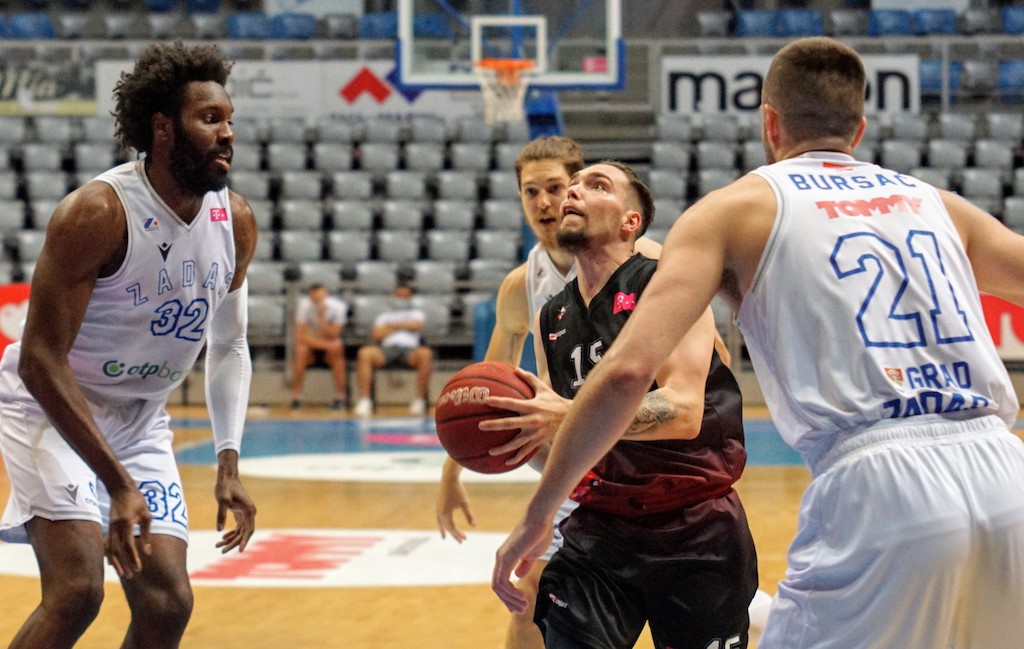
Burak Canboy
Gorica was still weakened and coach Josip Sesar arrived with only 10 players despite the return of Bakur, their inside players were mostly missing due to the continued absences of Ljubičić and Batur. Their main target before the game was to keep Zadar's big man Onuaku out of the game and to see if Karlo Uljarević could repeat his 22 point game from Thursday in which he scored 3 successful three-point shots.
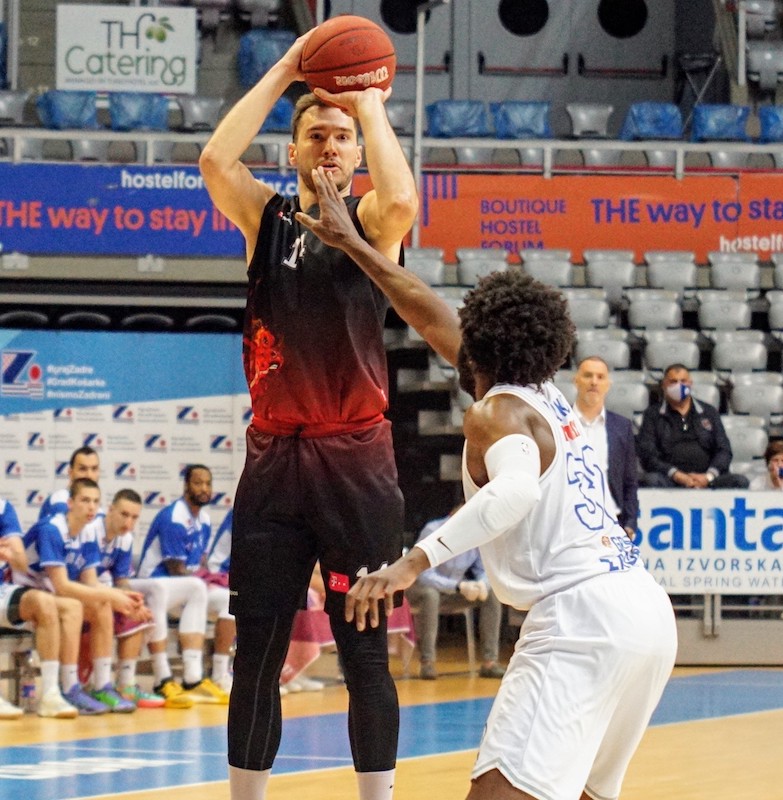
Burak Canboy
The Dalmatians started well into the game and decided the first quarter 18:14. The second quarter turned out to be quite ugly with plenty of fouls and few baskets out of set play situation. A buzzer-beater from Vuković sealed the hosts 42:30 halftime score.
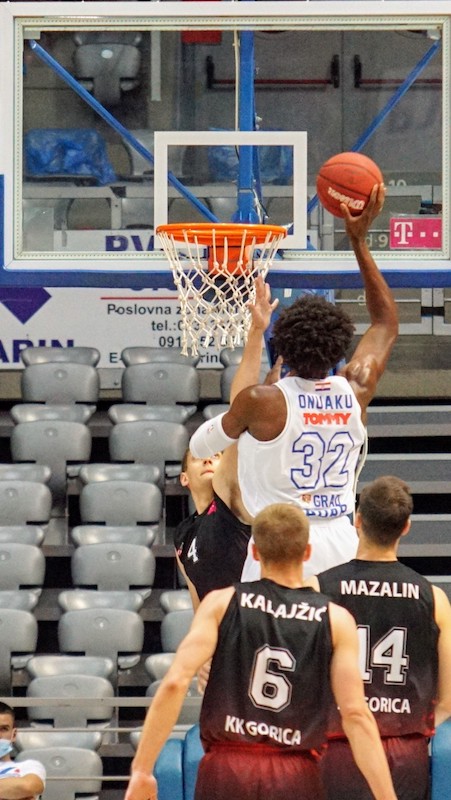
Burak Canboy
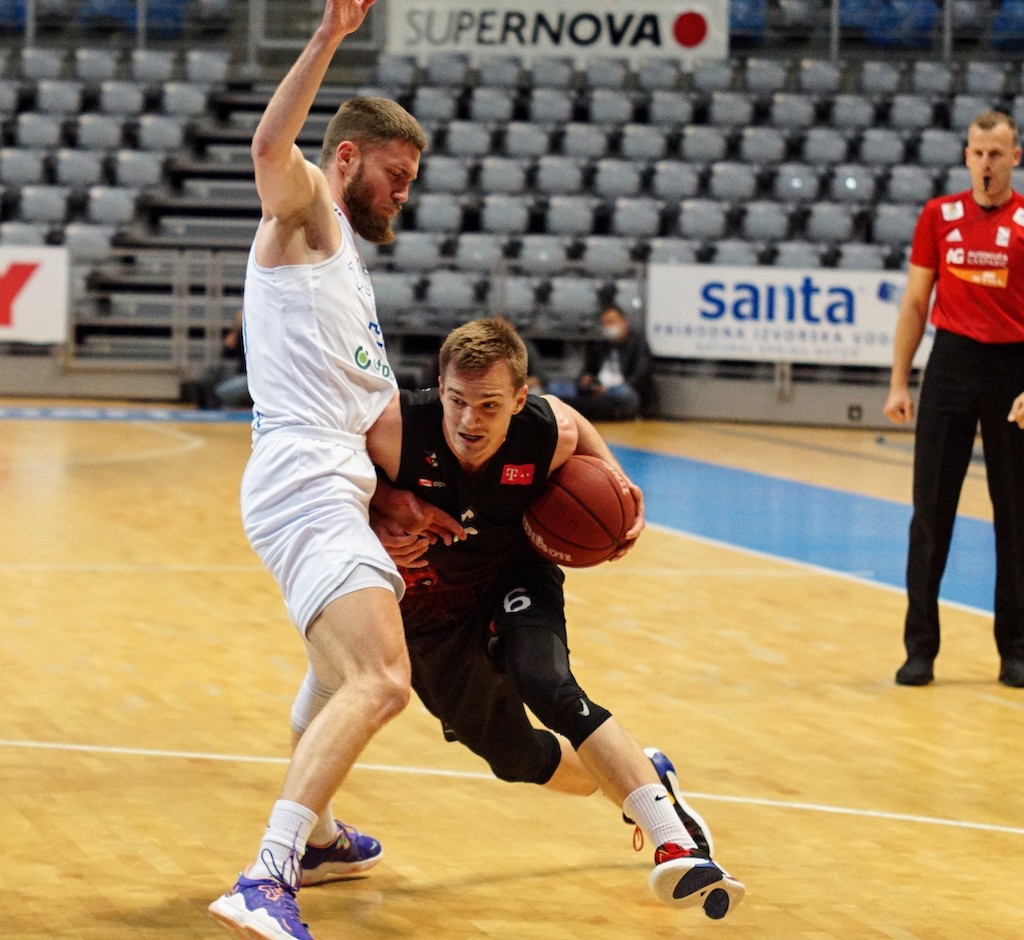
Burak Canboy
Plenty of fouls seemed to be the only hope for the underdogs from Gorica and the game continued how the first half had ended. Zadar was able to pull away to its largest lead of 64:39 but the guests did no give up. The men of coach Veljko Mršić managed to start the final quarter with a 10:0 run to achieve a 72:60 but could keep up the intensity until the end. Zadar managed the lead and sealed the 17 point victory to qualify for the finals in which they will have a home-court advantage against KK Split who make their first finals appearance after 13 years.
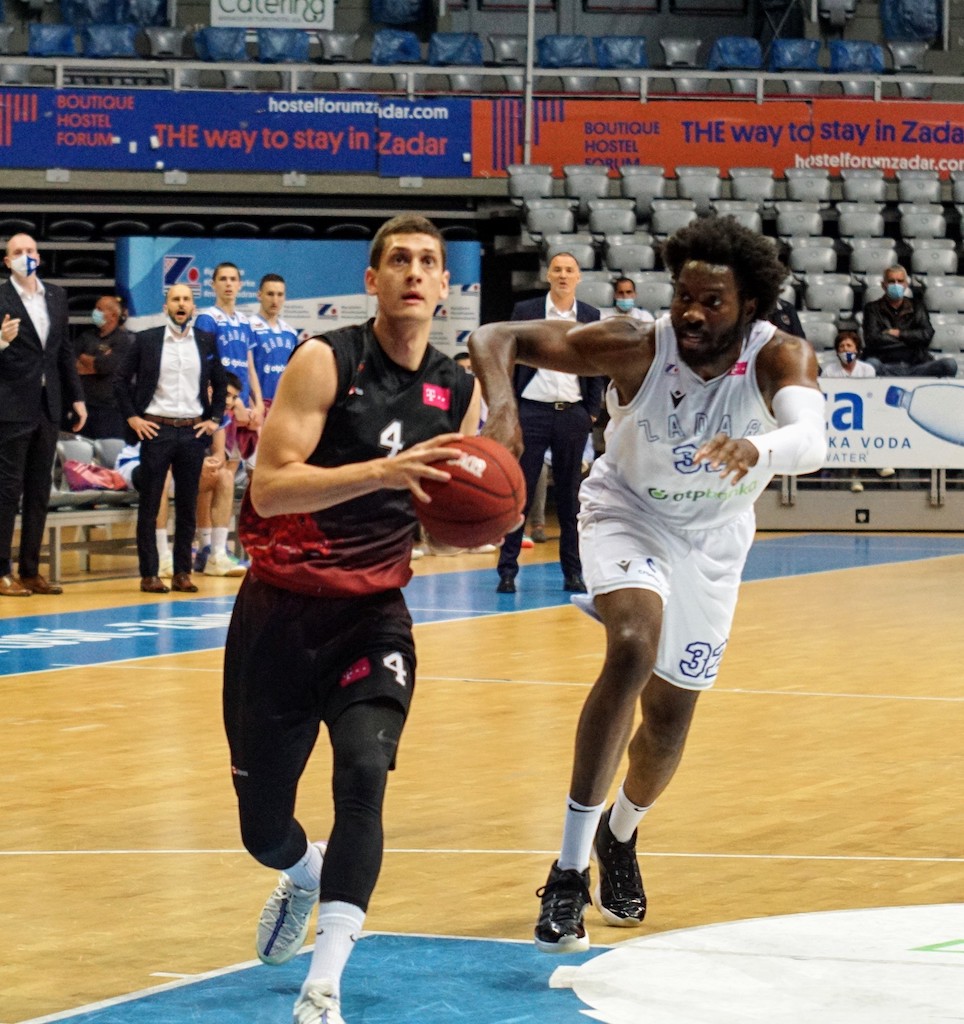
Burak Canboy
The top scorer of the night was Zadar's captain Dominik Mavra with 19 points, Karlo Uljarević scored 14 for the guests.
The finals will be played in a 2-2-1 mode with the first two games in Zadar on Wednesday and Friday. The first team to win 3 games will win the title.
Referees: Jovovich, Jurčević, Mustapić
23rd May 2021 18:00 Krešimir Ćosić Sports Center
Box score: https://fibalivestats.dcd.shared.geniussports.com/u/HKS/1883960/
To follow the latest sports news in Croatia, follow TCN's dedicated page.
To get more news about sports in Croatia, CLICK HERE.
Daruvarske Toplice Spa Awarded Bike & Bed Certificate
ZAGREB, 23 May, 2021 - The Daruvarske Toplice spa in Daruvar, 140 km east of Zagreb, is the first tourism facility in Bjelovar-Bilogora County that has met all the criteria for providing specific services intended for cyclists and has gained the right to use a Bike & Bed Certificate.
This continental county has more than 400 kilometres of cycling trails and routes.
So far HRK 2 million has been invested in the development of cycling tourism, installation of info boards, development of the mobile application for cycling trails and routes, installation of solar stands for bicycle repair, and preparation of new trails.
One of the activities was also the development of the standard for bike & bed accommodation facilities, which includes provision of information on cycling trails, cycling guides, repair, rental and transport services, and various events.
The first Bike & Bed Certificate has been awarded to Daruvarske Toplice hospital for medical rehabilitation and a dozen more are expected to be awarded in Bjelovar-Bilogora County in the coming period.
For more on lifestyle in Croatia, follow TCN's dedicated page.
For more news in Croatia, CLICK HERE.
Zadar Archipelago to Get Three Water Ambulances
ZAGREB, 23 May, 2021 - The state secretary at the Health Ministry, Silvio Bašić, said in Zadar on Sunday the Zadar archipelago would soon get three emergency medical service vessels.
"Besides the three vessels, Zadar County will also get one vehicle, a mobile surgery and pharmacy for the inhabitants of the remotest parts of the hinterland," Bašić said.
The county's public health institute will also receive a HRK 2.5 million molecular diagnostics device, a Viper LT, whereby the institute will become a reference centre for 12 Southeast European countries.
County prefect Božidar Longin said the first 12-metre-long water ambulance would arrive in a month and that the second vessel would be a pharmacy delivering medicines to remote islands.
The third vessel will be able to sail in all weather conditions and is intended for the remotest islands in the county, he added.
For more news about Croatia, CLICK HERE.
34 Candidates in Local Elections Haven't Submitted Financial Reports
ZAGREB, 23 May, 2021 - The legal obligation to submit financial reports seven days before the second round of local elections has been met by 283 out of 317 candidates, the State Electoral Commission said on Sunday.
The reports, including expenses, contributions and media advertising discounts, had to be submitted by midnight Saturday.
Reports were submitted by all 30 candidates for county prefects and the mayor of Zagreb as well as their deputies, 98 out of 110 mayoral candidates and 155 out of 177 candidates for municipal heads and their deputes.
For more about politics in Croatia, follow TCN's dedicated page.
For more about news in Croatia, CLICK HERE.
Croatia Karate Team Wins Gold at European Championship in Poreč!
May 23, 2021 - The men's Croatia karate team has won the gold medal at the European Championship in Poreč!
The men's Croatia karate team of Ivan and Anđelo Kvesić, Enes Garibović, Zvonimir Živković, Ivan Martinac, Ante Mrvičić, and Karlo Raguž won the European championship title for the first time in history at the 56th European Karate Championship in Poreč, reports HRT.
In the final match, Croatia beat Montenegro 3-0. The first point was won by Anđelo Kvesić, beating Nenad Dulović 3-1.
Uncompromisingly, as in all team fights, Kvesić convincingly outplayed his opponent and won the starting point in the final.
Due to the injury of the Montenegro national team player Predrag Smolović, Zvonimir Živković scored the second point without a fight.
The third point was the work of Ivan Martinac, who in the end achieved a great turnaround against Mario Hodžić 3-2 for the overall triumph of the Croatia national team and a great celebration at the Poreč "Žatika" hall.
Croatia thus reached the jubilee 100th medal since Croatian independence at the senior European Championships and World Championships in karate, which places karate at the top of the most successful sports in Croatia.
"We are all overjoyed, we had high expectations, but gold is a dream come true. We will surely celebrate well. Montenegro was a surprise for the whole EP; the big countries won; we expected a harder road, but it turned out great. I am a little sad that I lost the bronze, but the Olympic Games are coming; I believe I can win gold," said Ivan Kvesić.
"Deserved victory; we have a great team. This is a confirmation of past work, sacrifice, effort, and everything. We have top leadership by the Federation. I am proud to be a member of this golden team. This is a confirmation of work, quality, and motivation for the next competition. Angelo had a superb first match," said Enes Garibović.
Ivan Martinac brought the decisive point.
"I had that honor; we've been dreaming about this our whole lives. We had an opportunity at home. We deserved it."
Anđelo Kvesić is also delighted.
"We did the lion's share of work. Individually, I may have failed, but now the team gold has come."
Croatia won three medals
At the European Championship in Poreč, the Croatia team won three medals - gold - team (M), bronze - team (W) (Ana Lenard, Lucija Lesjak, Lea Vukoja, Mia Greta Zorko) and Enes Garibović -75kg.
The most successful was Turkey, the next host of the European Championship, with six gold medals (and a total of nine medals).
Danijela Topic won a bronze medal in para karate in the competition for people with intellectual disabilities.
During the EP week in Poreč, the election congress of the EKF (European Karate Federation) was held in the "Parentium" hotel, where for the first time in history, there were 47 presidents of national federations.
On that occasion, Davor Cipek, the president of the Croatian Karate Federation, was first elected to the Executive Board of the EKF. Then he became the general secretary of that sports organization.
A total of 596 competitors from 47 countries participated.
To follow the latest sports news in Croatia, follow TCN's dedicated page.
To get more news about sports in Croatia, CLICK HERE.


